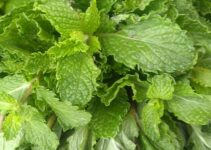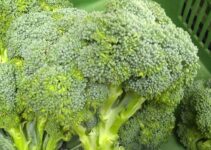Why is daily eating of onion a must?
I have spent my childhood with my grandparents in the village. I have seen the farmers and labourers hardly fall ill. There for some other reasons. However, I had observed that they have been taking onion regularly throughout the years at breakfast, lunch, and dinner. Now, onions have also protected them from many diseases and disorders. Onions are known as the protector of all conditions because of their numerous health benefits and medicinal uses. Onions are abundant with vitamins, minerals, and other phytochemicals. The eating of onion is good for arthritis treatment, regaining consciousness, curing headaches, and preventing cataracts, and also known as a disinfectant. Besides these, it is an appetizer, treats earache, stomach pain, and also effective in case of the common cold. It also acts as anti-viral, anti-inflammatory, and anti-bacterial, and its use relieves amoebic dysentery.

12 wonder benefits of eating onion
Onions are known for many potential health benefits, viz. cancer prevention, skin and hair health, improving moods, etc. Since ancient times, it has been known to treat heart disease, headaches, arthritis, and mouth sores. Here, we will also discuss its nutritional facts.
- Reduces the risk of cancer: In many types of research, it has been shown that eating onion helps to prevent stomach and colorectal cancers. A study in the Asia Pacific Journal of Clinical Oncology has found that eating onion reduces the risk of cancer by up to 80%. Onions also contain antioxidants, organosulphur, and quercetin, which prevents cancer too.
- Good for skin and hair: The eating of onion helps to build collagen because it contains Vitamin C. The protein collagen is beneficial for skin elasticity and hair health. Vitamin C also helps to boost your immunity. Vitamin C is also suitable for tissue repair and iron absorption.
- Bad cholesterol: The eating of raw onion helps to lower the production of LDL (bad cholesterol) thereby helping in heart health and its efficiency.
- Cure fever: A mixture of honey and onion helps to cure fever, common cold, and allergies.
- Stop Nose bleeding: The person who is facing nose bleeding can keep onion under the nostril and inhale. It will help to stop nose bleeding.
- Prevent tooth decay: Onion has anti-bacterial properties. The chewing of onion daily helps to kill oral bacteria and thus prevents tooth infection due to bacteria. It is also suitable for gums’ health.
- Parkinson’s disease: Onion has an adequate amount of phytochemicals, phytonutrients, and antioxidants. These bio-chemicals help to fight against Parkinson’s disease.
- Lowers heart disease risk: Recent studies have confirmed that onion contains antioxidants and anti-inflammatory compounds that decrease triglycerides, reduce cholesterol levels, and reduce high blood pressure. It contains quercetin, which is anti-inflammatory and lowers heart disease risk. The eating of onion is beneficial in reducing cholesterol levels and bad LDL cholesterol.
- Packed with antioxidants: Onions contain anthocyanin, quercetin, etc. There are about 25 types of antioxidants present in onion. All these antioxidants help to protect you from dreaded diseases like cancer, diabetes, and heart disease.
- Lowers sugar levels: In many studies, it has been confirmed that eating onion can lower the levels of sugar in the blood thus beneficial in case of diabetes or prediabetes. Antioxidant quercetin and sulfur compounds have anti-diabetic effects.
- Strengthens the bones: Onion enhances bone mineral density and reduces the risk of hip fracture. The eating of onion reduces oxidative stress, thereby decreasing bone loss and preventing osteoporosis.
- Strong immune system: The critical vegetable is full of polyphenols, which act against free radicals. They eliminate these radicals and help to build the immunity of the body. Quercetin stops your body from producing histamines, which are the culprits of sneezing, running nose, itching, and other allergic reactions.
Nutritional facts about onion
Onion is loaded with vitamins, minerals, and other nutrients. One cup of chopped onion provides the following nutrients. Energy (64cal), carbohydrate (14.9 grams), fat (0.16g), m cholesterol (0g), fibre (2.72 g), sugar (6.78g), protein (1.76g). It also contains calcium, iron, folate, magnesium, phosphorous, potassium and multiple antioxidants.
Top 11 facts about onion
- While cutting or peeling an onion, one leads to tears. This is because of the presence of isophenylpropide.
- China is the biggest producer of onion worldwide, followed by India and the United States.
- The phytochemicals like flavonoids are more concentrated on the upper skins of an onion. So try to peel as much as possible to the outer skin of the onion.
- About 105 billion pounds of onions are produced worldwide every year.
- Onions are an excellent source of vitamin C, sulphuric compounds, flavonoids, and phytochemicals.
- Onions are considered one of the most significant sources of antioxidants in the human diet.
- In the United States, 87% of yellow onions, 8% of red, and 5% of white onions are used.
- According to the Guinness Book of World Records, the giant onion ever produced is about 5 kg of weight.
- The leading producers of onions in the United States are Washington, Idaho, and Western Oregon.
- The average American eats about 9 kg of onion every year.
- To avoid the foul breath of onion, chew the citrus fruit peel or rinse your mouth with lemon water.
Side effects of onion
- One shouldn’t overeat as it may cause gas and bloat.
- Some people also experience allergies.
- It may increase heartburn if the patient is associated with gastric reflux disease.
- The eating of a large amount of green onion may counteract blood thinning. These onions have a high amount of vitamin K, which can reduce blood thinning.





